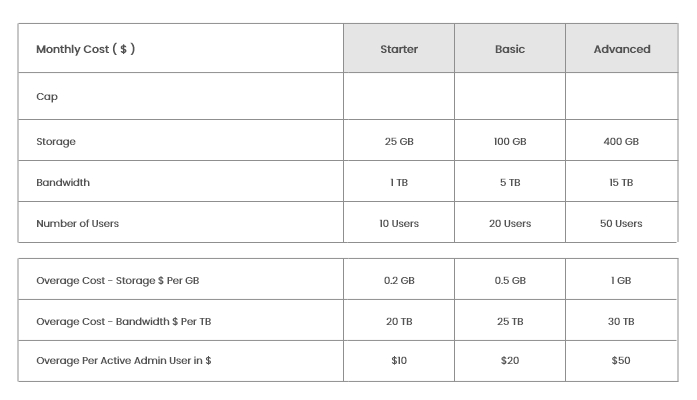



Three aspects of how search engines operate
Be visible to search engines in order to appear in search results...
Your material must first be visible to search engines in order to appear in search results. There's no chance you'll ever appear in the SERPs if your site can't be located, making it possibly the most crucial SEO puzzle piece (Search Engine Results Page).
How are search engines operated?
Search engines operate by performing three main tasks:
Crawling: Search the Internet for information, examining the code and content of each URL they come across.
Indexing: Keep and arrange the information gathered during the crawling process. Once a page is indexed, it has a chance of being returned as a response to pertinent searches.
Ranking: Results are sorted from most relevant to least relevant in order to provide the content that will best satisfy a searcher's request.
What is crawling in a search engine?
Search engines use the discovery process known as crawling to send out a group of robots, also referred to as crawlers or spiders, to look for new and updated content. The material might vary it could be a webpage, an image, a video, a PDF, etc. but regardless of the format, content is discovered by links.
In order to find new URLs, Googlebot first fetches a few web pages and then follows the links on those sites. The crawler is able to find new content by following this network of links, adding it to their Caffeine index, a sizable database of found URLs, to be later retrieved by searchers looking for information that the content on that URL is a good match for.
A search engine index is what?
In an index, which is a sizable database of all the stuff search engines have found and judged suitable for serving to users, they process and store the information they have discovered.
Rank on search engines
Search engines mine their index for stuff that is extremely relevant to a user's search, organize that content, and then try to answer the user's question. Ranking refers to the process of ranking search results according to relevancy. In general, you can presume that a website's ranking indicates how relevant the search engine considers it to the user's inquiry.
You can tell search engines to keep certain pages off of their index or prohibit search engine crawlers from accessing some or all of your websites. There may be valid justifications for doing this, but if you want your material to appear in search results, you must first make sure that it is crawlable and indexable. If not, it is effectively invisible.
Can search engines find your pages by crawling?
As you've just learned, appearing in the SERPs requires that your site is crawled and indexed. It might be a good idea to check how many of your pages are in the index if you already have a website. This will provide valuable information about whether Google is crawling and locating all of the pages you want it to and none of the pages you don't.
The advanced search operator "site:yourdomain.com" can be used to examine your indexed pages. Enter "site:yourdomain.com" into the search bar on Google. This will provide any results that Google has for the specified site in its index:
Although the amount of results Google shows isn't precise, it does give you a good indication of which pages on your site are indexed and how they currently appear in search results.
Use and keep an eye on the Index Coverage data in Google Search Console for more precise results. If you don't already have a Google Search Console account, you can create one for free. You can submit sitemaps for your website using this tool, as well as keep track of how many submitted pages have actually been included in Google's index.
There are a few reasons you might not be shown in any of the search results:
- Your website is new and has not yet been crawled.
- There are no external websites that connect to your website.
- The navigation on your site makes it challenging for a robot to effectively crawl it.
- Crawler directives, a type of simple code on your website, are preventing search engines from indexing it.
- Google has punished your website for using spamming techniques.
Instruct search engines on how to crawl your website.
There are some optimizations you can implement to better instruct Googlebot on how you want your web content to be crawled if you used Google Search Console or the "site:domain.com" advanced search operator and discovered that some of your important pages are missing from the index and/or some of your unimportant pages have been mistakenly indexed. You may be able to have more control over what appears in the index by directing search engines on how to crawl your website.
The majority of people consider ensuring that Google can locate their crucial pages, but it's simple to forget that there are probably certain pages you don't want Googlebot to find. These could be things like outdated URLs with scant information, duplicate URLs (like sort-and-filter criteria for e-commerce), specific promo code pages, staging or test pages, and so forth.
Use robots.txt to prevent Googlebot from accessing particular pages and areas of your website.
Indexing: How are your pages interpreted and stored by search engines?
The next step is to make sure your site can be indexed after you've confirmed that it has been crawled. That's correct – just because a search engine can find and crawl your website doesn't ensure that it will be included in their index. Crawling was covered in the part before, where we talked about how search engines find your site pages. Your uncovered pages are kept in the index. The search engine renders a page once a crawler locates it in the same way a browser would. The search engine examines the information on that page while it does this. The index of that file contains all of that data. NoFollow or NoIndex Tags are provided by Hocalwire CMS to enable and disable the crawling of a certain page. This might be a convenient tool that enables you to pick carefully what information needs to be searchable online.
How are URLs ranked by search engines?
How do search engines make sure users who enter a query into the search field receive accurate results? The ranking is the practice of arranging search results from most relevant to least relevant for a given query.
Search engines use algorithms, which are a method or technique for retrieving and meaningfully ordering stored information, to evaluate relevance. To enhance the caliber of search results, these algorithms have undergone numerous revisions over time. Google, for instance, modifies its algorithms daily; some of these updates are tiny quality improvements, while others are core/broad algorithm updates implemented to address a particular problem, such as Penguin to address link spam. For a collection of both proven and unconfirmed Google modifications dating back to the year 2000, visit our Google Algorithm Change History. Hocalwire lets you specify a special URL for each tale and serves the narrative by identifying the device that made the initial request. We can offer different pages and views from the same domain if necessary thanks to robust front-end architecture.
The goals of search engines
The goal of search engines has always been to deliver relevant responses to user's queries in the most helpful manner. If that's the case, why does it seem like SEO has changed from earlier years?
Consider how someone learning a new language might see it.
Their initial comprehension of the language is fairly basic: "See Spot Run." They gradually develop a deeper understanding and learn semantics, which is the study of language meaning and the connections between words and sentences. With enough repetition, the student eventually gains fluency in the language and is able to respond to even ambiguous or incomplete queries.
It was far simpler to rig the system by using methods and tactics that really go against quality requirements when search engines were just starting to grasp human language. Use the term stuffing as an illustration. In an effort to improve your score for a specific keyword, such as "funny jokes," you may add the phrase "funny jokes" numerous times to your website and make it bold:
Instead of laughing at amusing jokes, individuals were instead inundated with irritating, difficult-to-read material as a result of this technique. Although it might have been successful in the past, search engines have never desired this.
Hocalwire CMS handles the technical parts of keeping Large Sitemaps, Indexing pages for Google, Optimizing page load times, Maintaining assets and file systems, and Warning for broken links and pages while you handle all these non-technical components of SEO for Enterprise sites. If you're searching for an enterprise-grade content management system, these are significant value adds. To learn more, Get a Free Demo of Hocalwire CMS.

